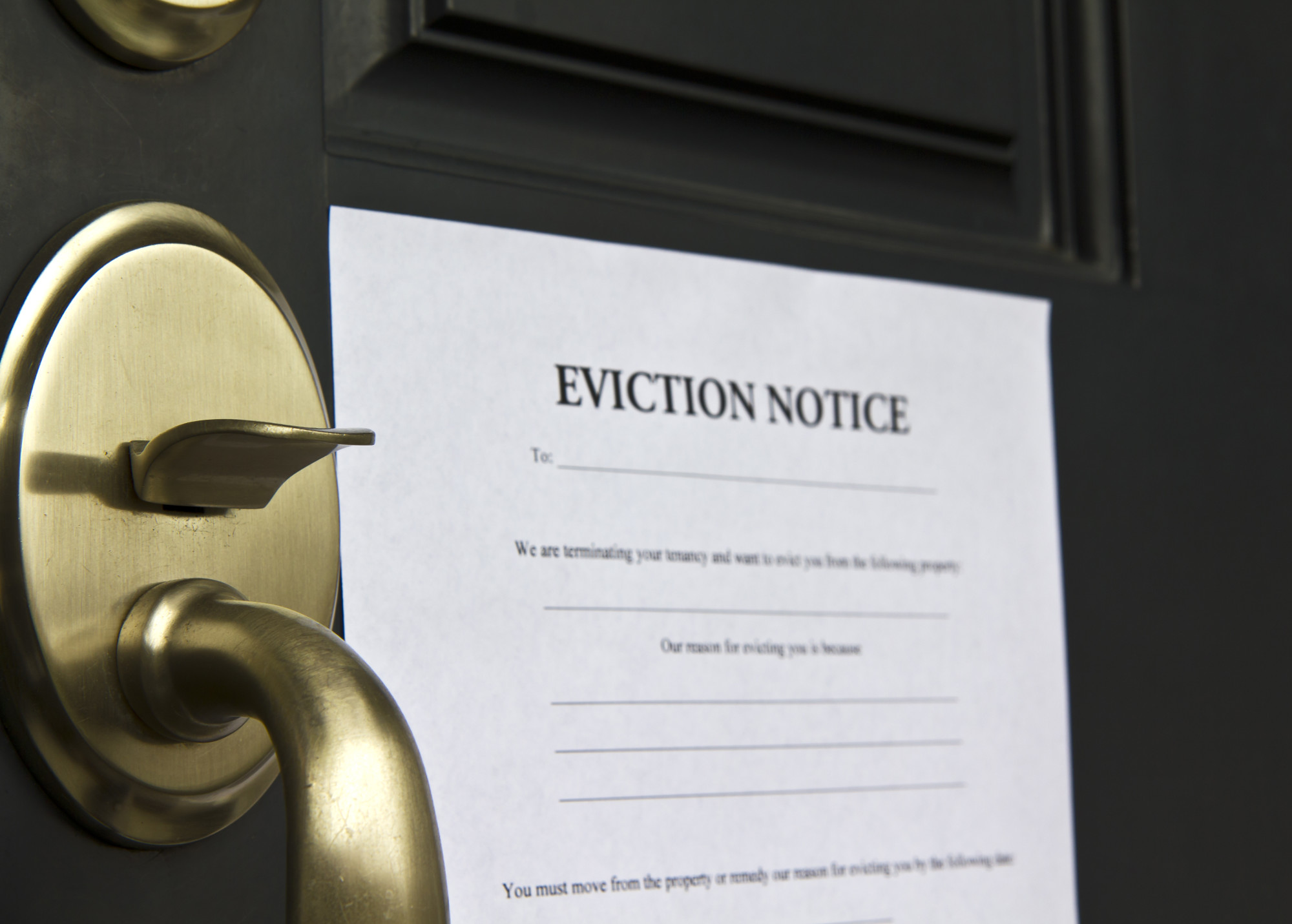Has your tenant failed to pay rent? Did you find out that they are in violation of their lease or agreement?
These are valid legal reasons for eviction, but you can’t merely boot them out.
The eviction process in Florida requires all landlords to provide a minimum of a 3-day notice to tenants. It doesn’t matter why you need to evict them. The law always gives them at least three days – or more for certain violations.
Failing to follow the law during the eviction process makes the whole situation much harder. You could even wind up in court. Here’s what every landlord needs to know about delivering an eviction notice in Florida.
How to Terminate a Rental Agreement in Florida
Florida state statute dictates when and how a landlord or tenant can terminate their rental agreement before the contract concludes.
There are two broad reasons that a landlord can end the agreement early. The first is the failure to pay rent. The second is when the tenant does not comply with the rental agreement or doesn’t meet their obligations to care of the property (as described by the law).
3-Day Notice: Eviction for Non-Payment of Rent
As the landlord, you can serve a tenant an eviction notice if they fail to pay rent. It doesn’t matter whether they are late only once or perpetually behind.
However, you can’t show up at their door, demand money, and kick them to the curb. The law requires that you give them a fair chance to fix the situation.
To demand payment under threat of eviction, you must deliver the tenant a written notice. You can’t evict them unless they fail to pay within three days after you it (excluding weekends and holidays). So if you deliver the notice on a Friday, they have until the following Wednesday to either pay or leave the property.
The notice you send is also known as the 3-day notice. It needs to note these key points to be legal:
- How much the tenant owes
- Why it’s owed (i.e., for rent and use of the premises)
- Address of the premises in Florida
- Demand for payment within 3 days (excluding weekends and legal holidays)
- The date you require the payment
- Landlord’s details
All these elements need to be present for the order to be valid. If you fail on any count, you give the tenant cause to fight the eviction, which can tie you both up in court.
7-Day Notice: Non-Compliance with the Rental Agreement
Has your tenant violated the terms of their lease? Again, you can’t kick them out immediately, except in extreme cases.
Florida eviction law covers two areas of non-compliance: the material items of the lease agreement and the tenant’s obligation to maintain the dwelling as provided in 83.52 of the Florida code.
The law says that all tenants have an obligation to:
- Keep up with state building, housing, and health codes
- Maintain the property so that it is clean and sanitary
- Act reasonably with all appliances and facilities
- Avoid damaging or destroying any part of the premises
- Behave in a way that doesn’t disturb neighbors or breach the peace
If the tenant fails to do one or more of the above, then you typically need to provide them with an opportunity to fix the problem. Unlike failure to pay rent, you must provide them with more time.
Landlords need to provide the tenant with a 7-day notice in these cases. It needs to be a written notice that contains the following information:
- The issue of noncompliance (their violation)
- Demand to rectify the problem within 7 days
- Notice the lease will end if compliance does not occur
- Repeat offenses within 12 months result in immediate cancellation of the contract
You’ll send this kind of notice if you find the tenant has an unauthorized pet, has allowed damage to the dwelling, or has had one or two parties that breach the peace.
Eviction: Curable and Non-Curable Offenses
There are instances where you do not need to allow the tenants to clean up their act. The law says you can evict them in seven days without waiting for them to fix the problem. You can do this in cases such as if they destroy the property, misuse the property, or create a continued breach of the peace.
What’s the difference between a curable offense and a non-curable one? If an inspection suggests they haven’t taken out the trash in weeks, you can send them a curable offense letter.
If inspection proves they are running a meth lab in your basement, you can evict them immediately (in seven days).
To evict the tenant immediately, you need to send them a written letter. It must state that:
- The tenancy is now over
- The tenant must vacate in seven days from receipt (not including weekends and holidays)
- The reason the occupancy is over
Keep in mind that you need to provide them with an opportunity to cure it. Only the most egregious or dangerous cases allow for immediate eviction, so be sure to check with your lawyer before sending an immediate eviction notice.
Fighting the Eviction
Even when you have legal grounds and follow the notice regulations, some tenants may choose to fight the eviction. If this happens, you will file a complaint with the county courthouse.
The tenant has five days to answer your complaint in court. Both of you have a chance to present your case, and a judge makes the final decision on the eviction.
These cases are costly, and it is often in the best interest of the landlord and tenant to work out issues, like offering a few more days before eviction, through dispute resolution.
Follow the Notice Rules to Protect Your Rental Business
As a landlord, you must provide a 3-day notice to tenants who fail to pay rent and a 7-day notice to those who violate their lease.
It may be tempting to ask them to pack up and leave. But if you don’t deliver these notices in writing, you risk ending up in court.
Do you have questions about the landlord’s role in lease enforcement? Get in touch today to learn how we can help you resolve lease disputes.






